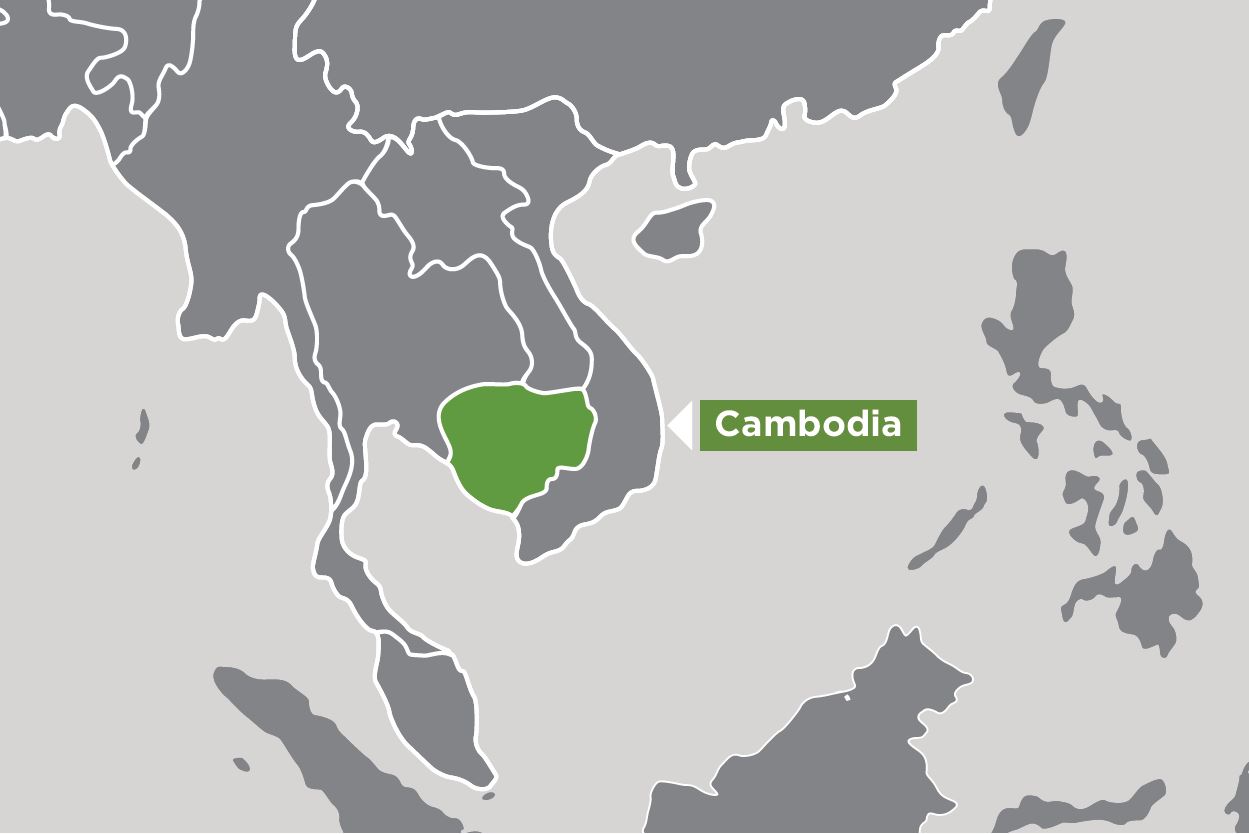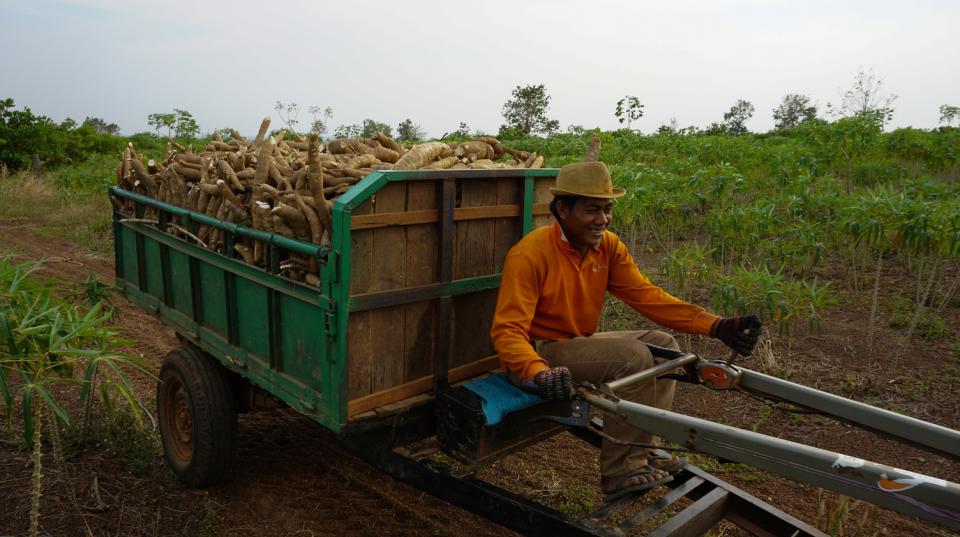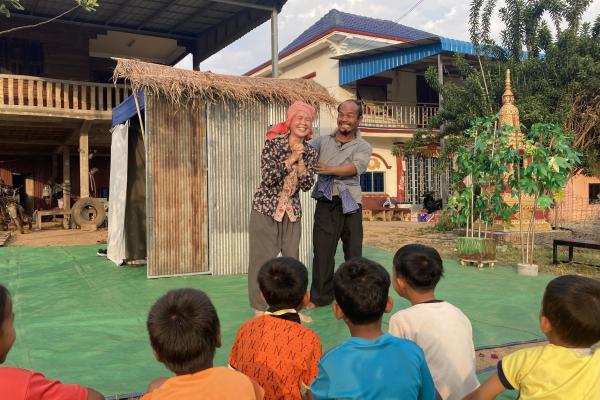Overview
This project is increasing adoption of agricultural technologies and best practices in Battambang and Pailin provinces, Cambodia.
A farmer’s decision to adopt an agricultural technology or practice involves many technical, local, financial, contextual and personal factors.
Efforts to encourage adoption must prioritise perceptions of problems and solutions, including how farmers imagine solutions might be implemented and the actors they believe are involved. Such problem-solution pathways (PSPs) emphasise the everyday influences that ultimately determine adoption.
This way of understanding farmer decision-making is especially important in northwest Cambodia, where the problems of ongoing poverty and marginalisation remain significant impediments to more sustainable development. Cassava is Cambodia’s second most important crop, behind rice.
The region is in the midst of a cassava boom and possible bust. The project aims are two-fold: in a direct ‘applied’ sense, to enable and measure adoption of best practices by farmers in northwest Cambodia; in a more ‘academic’ sense, to test an approach to behaviour change that could fundamentally alter partnerships between poor, marginalised and female farmers with those who aim to improve their lives.
Expected project outcomes
- A greater understanding of the experiences of marginalised farmers, particularly female farmers and/or female-headed households, and their use or access to technologies and/or best practices.
- Greater income due to production increases, income stability or diversification.
- Reductions in soil degradation and erosion caused by current cassava production, and a transition to more environmentally sustainable agriculture.
Summary of outcomes to date
2021-22
- The past 12 months have enabled extensive data analysis and development of outputs.
- ‘Opening the agricultural extension 'black box': farmer experiences in the context of agrarian change’ demonstrates that agricultural extension is, primarily, an act of neighborly relations, which circulate via social networks.
- ‘Climate smart agriculture and climate-attuned farmers: the rationality of farmer practices in Northwest Cambodia’ demonstrates the compounding impacts of environment, social, and economic variability on farmers’ practices and their rational responses.
- A return to the field will enable follow-up engagements with participants from knowledge exchanges run on the topic of pest and disease management, exploring the impacts of meaningful engagement with farmers and measuring the possibility of spillover effects to non-participants.







